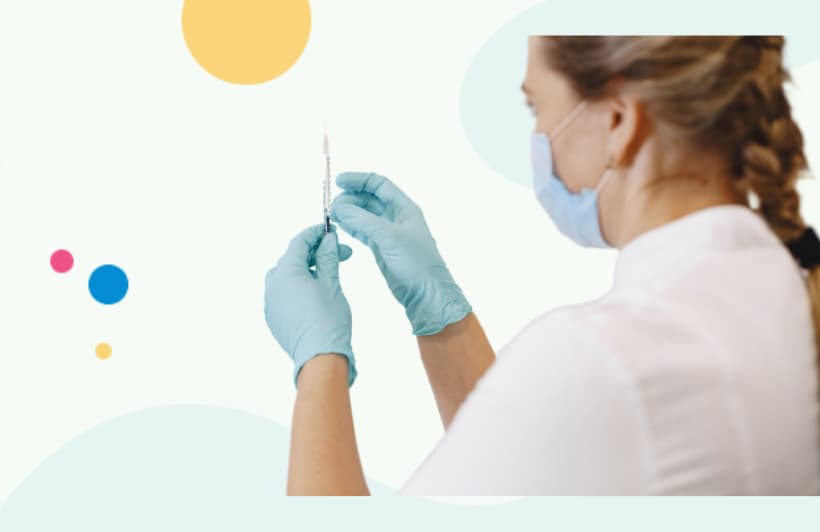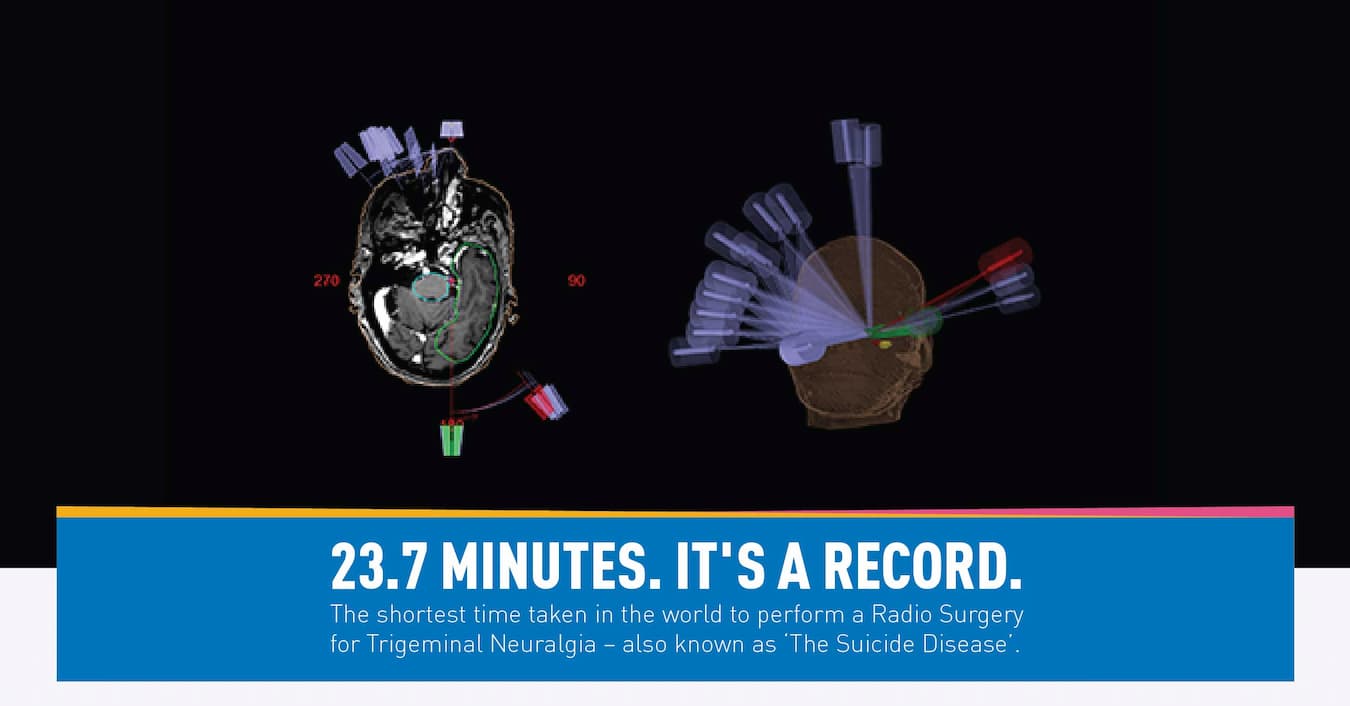
07 Mar, 2022

07 Mar, 2022
The first thing you should know about cancer is that prevention is always better than cure, and it is not any different in the case of Cervical Cancer. With proper preventive measures, anyone can reduce their cervical cancer risk easily.
Presently, cervical cancer prevention is achieved through vaccination and screening. Screening is a clinical procedure that checks for the early signs of cervical cancer among apparently healthy women.
Vaccination, on the other hand, reduces one’s risk of developing cervical cancer by preventing chronic HPV infection, which is strongly associated with cervical cancer incidences. It is reported to be one of the effective methods to prevent cervical cancer.
In 2019, a meta-analysis report presented strong evidence on HPV vaccination’s efficacy against cervical cancer.
Cervical cancer is the second most common cancer and accounts for 22.86% of the total cancer burden among Indian women. Human Papillomavirus (HPV) is identified as the causative factor for more than 90% of cervical cases.
More than 100 types of Human Papillomavirus have been identified, and of these, about 15 are high-risk types with the potential to cause various types of anogenital cancers, namely cervical, vulval, vaginal, anal and oropharyngeal cancers. Of all, HPV 16 and 18 types are observed to cause 70% of cervical cancer cases and precancerous lesions.
HPV infections are usually transmitted through sexual contact. About 90% of the HPV infections are self-limiting, i.e., they spontaneously clear up within two years by the virtue of the body’s own immune mechanisms. In other words, the majority of HPV-infected women do not develop cervical cancer.
However, a small percentage of HPV infections, especially those that are caused due to high-risk HPV types don’t clear up. If left untreated, these infections may lead to precancerous lesions and cervical cancer eventually.
There are several risk factors, which are associated with the progression of these precancerous lesions to cancer. The main risk factors include tobacco use, early sexual activity, early age pregnancy, multiparity, related sexually transmitted infections, immunocompromised conditions, etc.
Pap smears help reduce the risk of cervical cancer by detecting precancerous lesions caused due to HPV infections. However, the development of HPV vaccines has created opportunities for more effective cervical cancer prevention.
Currently, there are two HPV vaccines available – Gardasil and Cervarix. Gardasil 9 is the third type, which was recently approved by the USFDA HPV infection prevention, and it is slowly being made available in India.
Both Cervarix and Gardasil vaccines offer protection against HPV 16 and 18. Gardasil offers additional protection against the virus types HPV 6 and 11 that are associated with 90% anogenital warts. Cervarix also offers protection against other HPV types through the cross-protection mechanism. Gardasil 9, however, offers additional protection against 7 oncogenic types (HPV 16, 18, 31, 33, 45, 52 and 58) along with HPV 6 and 11 types. It covers almost 90% of virus types with cancer-causing potential.
HPV vaccines work just like other immunisations. These vaccines contain purified, inactive protein particles from the virus. These particles can trigger the formation of HPV-specific antibodies or other immune mechanisms.
This way, when the infection actually occurs, your immune system is ready to fight against it. This vaccine effectively curbs persistent HPV infections and thereby helps in preventing the formation of precancerous lesions and subsequent cancer development.
However, HPV vaccination should be considered a preventive measure only and not as a treatment method for precancerous conditions or cancer itself.
Ideally, the vaccine is administered before women become sexually active. In other words, the vaccine must be given before there is any contact with the relevant HPV types.
HPV vaccination is recommended starting from the age of 9, with catch up vaccination that can happen till the age of 26. However, HPV vaccination among sexually active women till the age of 45 years is globally approved, as it still offers protection of a certain degree.
HPV vaccination is basically administered with a 2-dose schedule that is recommended between the ages of 9 and 14 years. However, a 3-dose schedule is recommended for those who get vaccinated after the age of 15.
HPV vaccination does not cause any major side effects. However, in rare cases, pain, swelling, itching, bruising, redness at the injection site, headache, fever, nausea, dizziness, vomiting and fainting could be observed, which wear off after some time.
Australia was the first country to introduce a National HPV Vaccination programme in order to achieve the elimination of cervical cancer. Such programmes are necessary for countries like India, where the incidence is high.
Globally, the WHO has set a 90/70/90 target that is to be achieved by 2030. As per this programme, 90% of adolescents shall be vaccinated, 70% of women will be screened for HPV at least twice in their lifetime, and 90% of women will be treated effectively for precancerous lesions or cancer itself.
That said, awareness among the masses is the key to beat any disease. Awareness of cervical cancer should be created on both individual and community levels, through which the risk of cervical cancer can be successfully brought down among women.
Yes, you can get the HPV vaccine even if you are above 26 years old. It is both safe and effective. It is also a better option over not getting vaccinated and making yourself more susceptible to HPV infections and other complications associated with it.
Yes, several studies have shown that HPV vaccines are safe. It offers protection against HPV infections and other complications, such as anogenital cancers and warts.
Just like any other vaccine, the HPV vaccine may also cause temporary side effects. Many women do not experience any side effects at all. However, if you have any questions about the side effects, you can discuss them with your doctor, who will help you with all the necessary information.
No, the HPV vaccine does not contain a live virus or even its DNA particles – so they cannot multiply and cause an infection when injected. This vaccine is made of inactive, purified protein particles from the virus that trigger antibody production and other immune mechanisms, which help in preventing HPV infections.
HPV vaccine should be avoided by pregnant women and by those who are moderately or severely ill. Also, this vaccine should be avoided by those who are allergic to the components of this vaccine. It is always better to discuss your allergies with your doctor before the vaccination.
No. There is no evidence that the HPV vaccine causes infertility. Several studies have found that there is no relationship between the HPV vaccine and infertility.
However, if you have any concerns, you can talk to your doctor, who will provide you with sufficient information on the HPV vaccine’s safety.
Yes, women will still have to undergo pap tests after getting HPV vaccines, as these vaccines do not offer 100% protection against cervical cancer. However, it is important to note that HPV vaccines can bring down your cervical cancer risk remarkably.
This article is contributed by Dr. Abhilasha Narayan, Consultant - Gynaec Oncology, HCG Cancer Centre, Bangalore.
